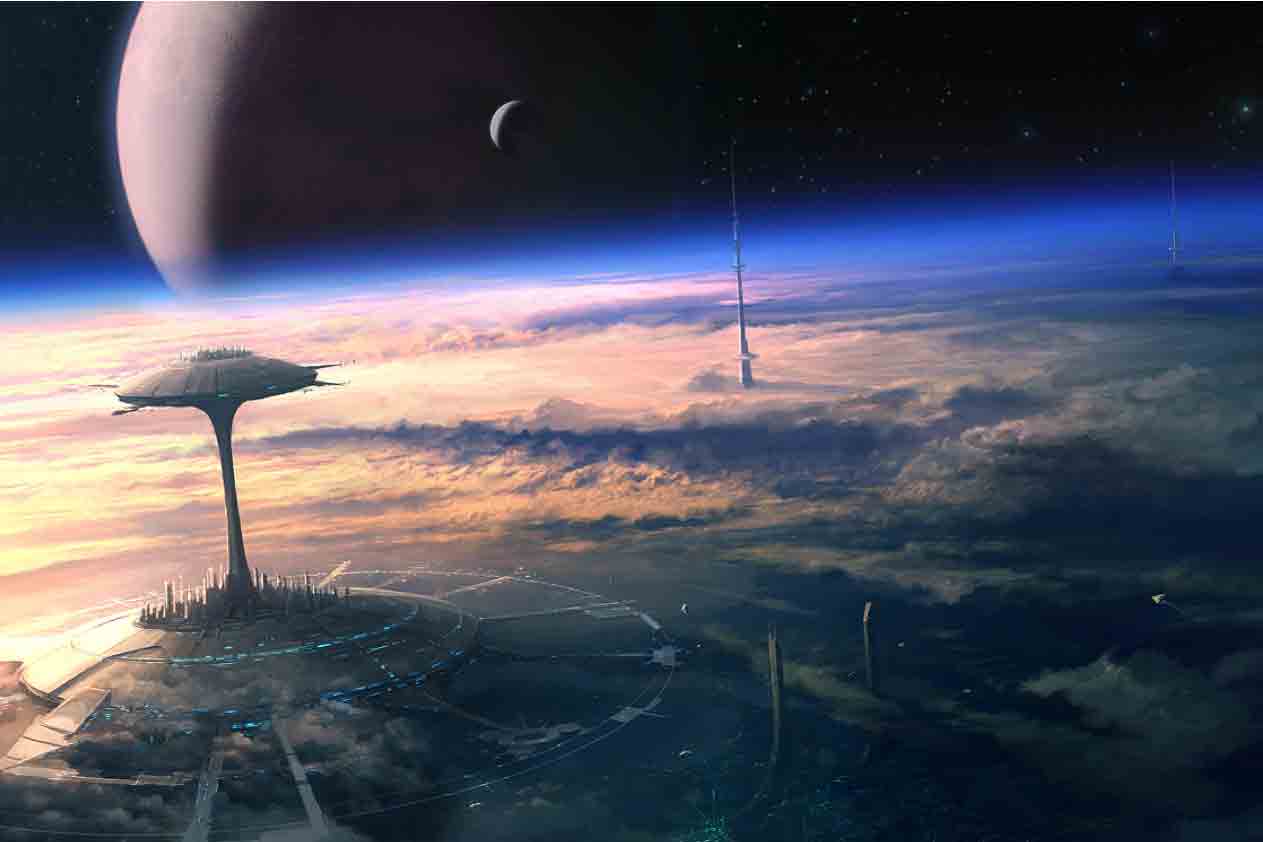While we wait for the official announcement to start talking about the book, here’s some context for Gravity in the meantime. Most science fiction today falls into proven commercial patterns, such as the post-apocalyptic wasteland thriller, the evil robots are taking over thriller, the cyberpunk actioner, and the super-powers in the modern world thriller. These are great stories, don’t get me wrong, but there seems to be very little else out there today, outliers like Avatar aside.
In contrast, I grew up reading the books from the Golden Age of science fiction, such as Foundation and Dune, pictured above. I read them in the 1980s, long after the Golden Age had passed into history, but I consumed the works of Arthur C. Clarke, Isaac Asimov, and Frank Herbert as if they were oxygen. These books described a scope far beyond our contemporary stories. They imagined whole galaxies colonized, future human civilizations far in advance of our own, with stories driven by the drama of real science and human psychology.
Yet, as science and particularly astrophysics advanced, our science fiction rarely kept pace. Simply by virtue of living in a different era, Asimov, Clarke, and the other Grand Masters of science fiction have left several stories untold. Reading such books as Stephen Hawking’s A Brief History of Time and Michio Kaku’s Hyperspace, I couldn’t help but wonder what a Golden Age writer might do with the stranger-than-fiction universe we continuously find ourselves in. Gravity is one of a handful of stories that emerged from this process, and the gaps left by the Grand Masters and the modern commercial silos. But before I reveal too much before my publisher wants me to, let’s just say that the spirit of the Grand Masters, with their dizzying scope and truly speculative science fiction, deserves a renaissance. We have too many interesting discoveries accumulated to ignore their storytelling potential.
Cheers,
Jamil


{ 6 comments }
“Most science fiction today falls into proven commercial patterns”. Are you talking about filmic or literary SF? If filmic SF, I’d agree with you, but if talking about the book variety, I’d point you to writers like Ian McDonald, Adam Roberts, Greg Egan, Paul McAuley, Charles Stross, Paolo Bacigalupi, Neal Stephenson…
Hi Lou, nice to meet you! I do mean most science fiction as it reaches the mainstream, mainly television, film, video games, and NYT bestselling novels. I would agree with you that literary SF is a significant escape pod from this trend, and the main reason I prefer this medium for telling my own stories.
Ah, then we agree. My favorite SF films incidentally are works like MOON, GATTACCA, PRIMER, ETERNAL SUNSHINE OF THE SPOTLESS MIND, DARK CITY, DISTRICT 9. Quality seems inversely proportional to budget. First MATRIX rare exception.
Hey Jamil –
Met you last week when you visited our studio and ended up here from your Facebook page – super impressed you are publishing your own sci fi novel!
I’m a huge Dune/etc. fan as well and it’s an interesting critique of modern sci-fi as a genre.. I can’t name too many standout works – most of my recent favorites have all been fantasy – compared to older classics like Dune, Foundation, Hyperion, the list goes on.
There’s definitely some outliers, though – have you heard of “Anathem” by Neal Stephenson? Loved it though it starts a bit slow – very interesting take on an alt. universe that takes awhile to reveal its sci-fi underpinnings, though it’s not much of a space opera if that’s what you are looking for specifically.
Anyway, best of luck and I look forward to checking out “Gravity”!
Hey Corey, thank you for your kind words. I read the first 50 or so pages of Anathem, and must admit I didn’t really get into it. Maybe I’ll pick it up and try it again, as I do admire Snow Crash and The Diamond Age.
Jamil:
Best of luck with the publication of your first novel. Magnificent achievement in itself. I look forward to reading it. SF has long been a favorite of mine; the Foundation series and Childhood’s End kept me enthralled on 4th and 5th reads.
regards.
ps
Comments on this entry are closed.